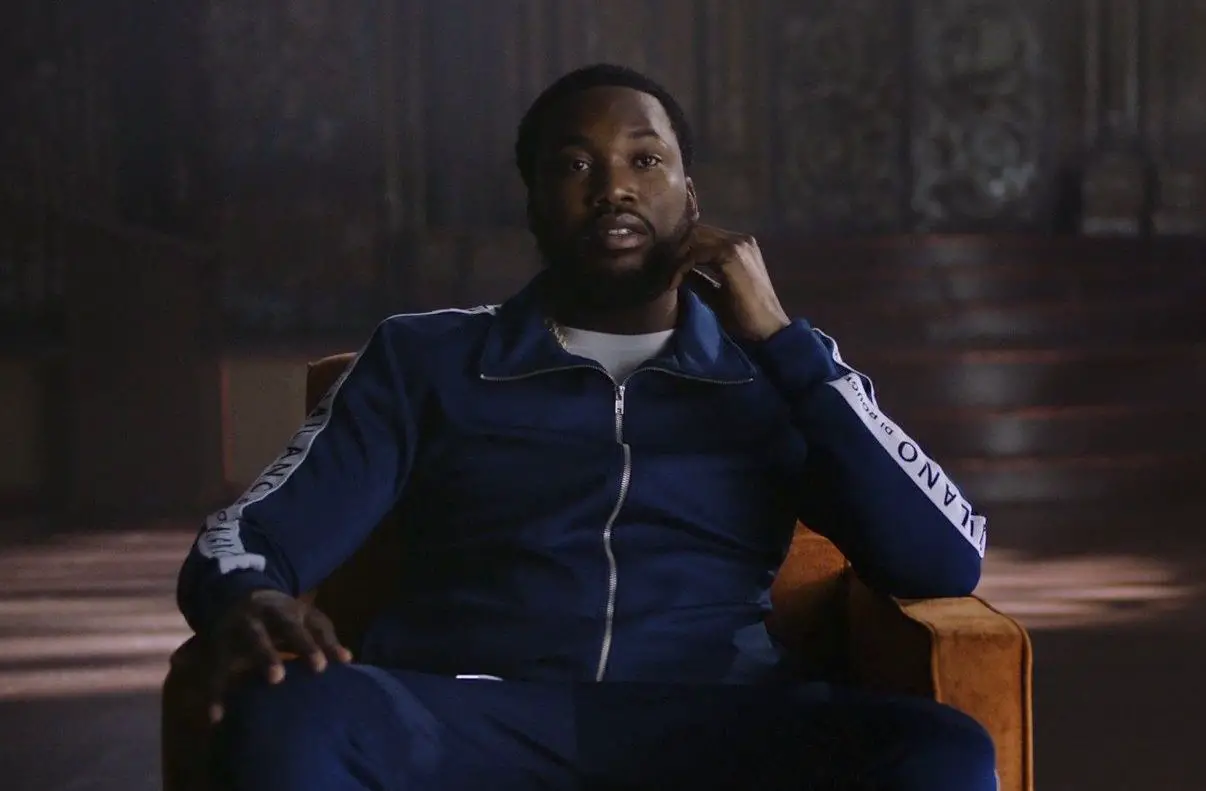Everyone carries scars. No matter the severity or opacity of them, scars are the root of untold stories. In Robert Rihmeek Williams’ case, a single scar will be the thing to change his life forever. The hip-hop rapper popularly known as Meek Mill, bears a medium-sized gash above his right eye where policemen beat him on the fateful night of his 2008 conviction.
What was supposed to be a quick run to the grocery store morphed into a bloodied, rogue drug raid inside Mill’s home. It was a story not even Mill was aware would follow him for the rest of his life. In the Amazon Original docuseries, “Free Meek,” the unmasking of said story fueled the movement and call to action for reform in the United States justice system.
Rap mogul Jay-Z produced the series, taking on the journey of exposing the flaws of the system after realizing Meek’s story is one of many.
Tamika Mallory, one of the leaders of the Women’s March, contributes an interview to the series. “Meek Mill’s story is too familiar to too many black families across the United States,” says Mallory. “How he was being railroaded is an indication of how America is failing black men.”
Mallory’s is simply one of the provoking testimonies in the production. High profile names such as Paul Solotaroff and Van Jones along with extended family members of Meek’s appear in the docuseries to recount his injustice.
“This is a story where there is injustice in every crack and crevice,” Solotaroff claimed.
Here are 3 things I took away following the rolling credits.
1. Probation Reform Is Essential
Mill went to prison several times over the course of his initial 11-year probation sentence. Probation is the promise of release from prison under the supervision of another adult, known as the parole officer, assigned to a case.
There are rules regarding behavior in order to provide a better life for those released from the confines of a cell, and, for the “Dreams and Nightmares” rapper, these rules determined whether or not he could face jail time for a technical violation.
Jones spoke about the practice of probation periods. “Here’s a dirty secret.” he said, “Everybody talks about mass incarceration, which is about two million people. What they don’t talk about is mass supervision, which is about five million people … They’re still not free.”
In the series, it was expressed early on that Mill’s sentencing was gracious considering the false accounts of the arresting officer; however, the 13-year battle is still a dark cloud threatening to bring him back to prison at any given moment.
“When cops kill people with guns, you know, that’s a terrible thing,” Mill says. “When judges kill people on paper, that happens probably 1,000 times a day in America.”
Genece Brinkley was the judge appointed to Mill’s case in 2008. The docuseries singles Brinkley out, and rightfully so, following the many letdowns of Mill’s journey. Ever since the ruling of her verdict, the rapper has been in prison at least three times under the pretense of probation violations, which were never criminal in any way.
2. The Effects Are Forever (Addiction/Trauma)
The initial counts against the Philadelphia native were his downfall at 19 years old.
Mill, now 32, continues to fight for his freedom. But the trauma of incarceration has not only been physical. The docuseries allows the audience to see fragments of Meek’s mental condition following his arrest for motorcycling through the streets of Harlem.
Former executive of Roc Nation, Cha-Ka Pilgrim, spoke of the unfair conviction and how unsettling it was for the star. “He became a victim at that point,” she said. “There was not one person who felt like he deserved this to happen to him.”
Mill admitted to getting hooked on Percocet, an addictive prescription drug used as a pain killer, after receiving them from his dentist following a treatment. He continued to take higher and higher doses until he felt completely numb. Meek’s addiction to Percocet strengthened; he turned to codeine as well.
“You high every day. You just escaping reality,” Mill says. “It was just like a way to take me away from my problems really.”
After reflecting on his life and son, Papi Williams, the rapper went on to seek drug treatment in a rehabilitation center. He told the interviewers in the series how easy it was recovering under a different frame of mind, but even now Mill is not the same as his family members remember him.
Mill’s sister commented that her brother’s struggles were rather hidden, until they weren’t. “I never really knew that he was fighting these battles until it was time for him to get help,” said Nasheema Williams.
3. “Free Meek” Is Bigger Than One Man’s Injustices
Do not let the docuseries title fool you. “Free Meek” is about freeing all of those who have been wrongfully convicted. Especially for people of color, the United States’ judicial system has made a habit of trying and convicting those who are innocent.
“Coming from the environment we come from, the odds are set against you,” the rapper says.
Mill is no stranger to unjust practices, but the documentary probes one important question: What about the innocent people who share Mill’s story but not his resources and support?
Typically, officers and judges go unscathed for their wrongdoings because those convicted come from low-income families and environments, where decent legal support is a luxury.
Mill has joined forces with Jay-Z, Solotaroff, Jones and more to rectify the situation. The docuseries also offers a solution to the issues of wrongful convictions, but these men are attempting to go after the root of the problem: the laws.
Although he sought to speak out against injustice, the “Going Bad” singer didn’t realize what his activism would create. “I didn’t ask to be the face of reform,” he said at the launch of Alliance Reform Foundation. “I don’t want to be the face of anything. I just want to speak for the people who don’t have a voice.”
Even in the midst of a new trial, Mill has devoted himself to the cause and is willing to put everything on the line to do so. The compelling docuseries is proof of his determination and how fearless the rapper is.
Mill tells the camera, “My whole objective is to, no matter what they try to do to me, come back out and come back even stronger than before.”
















